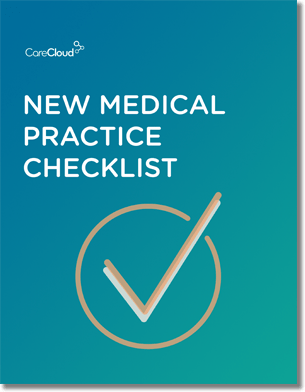The political and economic climate surrounding the healthcare industry has underscored a number of administrative and organizational issues, i.e., wasteful paper processes, pesky medical billing errors, and lackluster first-pass resolution rates.
Electronic health records have been touted as a panacea of sorts, the kind of caped hero with a Puritan work ethic that makes a habit of saving the day. But is this the case?
One oft-discussed EHR capacity is coding – some providers love a coding-capable EHR while others condemn it, citing errors and improper billing practices. Does coding with an EHR save, make or cost your practice money? Below are the facts.
Do EHRs and Coding Make Sense Together?
The publication of September New York Times article on the Medicare costs of overbilling gave fuel to adversaries of EHRs and the Meaningful Use incentive program, and some even believe coding functions in EHRs should be reevaluated.
A New York Times analysis of Medicare data from the American Hospital Directory discovered that hospitals receiving government incentives to adopt EHRs reflected a 47% rise in Medicare payments and even the Health and Human Services Department warned that coding of evaluation services was “vulnerable to fraud and abuse.”
However, challenges will naturally arise when established processes undergo change, and EHR implementation is likely to uproot a number of habits and procedures at your practice.
The Times article that has the healthcare world up in arms points to the E&M code as the culprit of the Medicare overbilling. When viewed from the perspective of the EHR, the cause of ‘overbilling’ is simply the result of the system compensating for the physician.
As a similar Information Week article points out, “what many doctors claim is that their EHRs help them document the work they actually did, which often results in higher codes than they might have put in if they didn’t have an EHR.”
In 1995 and 1997, Medicare specified how to measure a doctor’s diligence by introducing a 5-level criterion for visits so extensive that nearly no physician filled it out to its fullest extent by hand. When combined with Medicare’s auditing threats, doctors often practiced defensive billing and charged less than they should have.
In other words, threats of overbilling and overcoding may simply be the result of an EHR doing the job physicians have a tough time carrying out.
Benefits of EHRs for Coding
While EHRs present a voluminous amount of data to coders at their fingertips, it’s essential that coders receive training before navigating and maneuvering the system.
Let’s start with workflow. Having an EHR dismisses a number of inefficiencies from your practice workflow, which is often mired with the time-consumptiveness and tediousness of coding. Why not optimize your practice and streamline coding chores with an EHR?
With an EHR, coders are at the forefront of health IT, making them the perfect research subjects to help advance the coding profession, so to speak. Furthermore, an EHR brings flexibility to the coding profession, giving them the opportunity to read digital documents directly and solve issues with legibility.
Perhaps most importantly, EHRs give coders the room to access their work remotely, thereby improving productivity and quality of work. Paper-based coders would have to wait for records to be picked up and assembled, whereas coders today can begin as soon as a patient is discharged.
And all of this is likely, of course, if the EHR you choose is equipped to handle tasks efficiently. Your practice shouldn’t settle for anything less than bundled, best-of-breed, interoperable, cutting-edge systems, the kind that is easily optimized for healthcare’s ever-evolving needs.
How are you coding with your EHR?

Do you know what you need when setting up a new medical practice?


